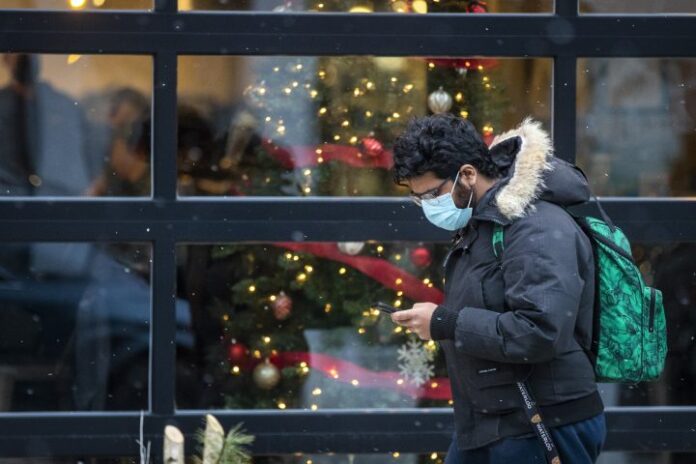“A curfew is particularly problematic because it purports to empower police officers to stop and question individuals simply for being outdoors at certain times of day,” Cara Zwibel, the association’s director of fundamental freedoms and acting general counsel, said in a statement Friday evening. “The burden of these police stops is likely to fall disproportionately on racialized individuals and other marginalized groups.”
Quebec is the only province in Canada to use a curfew as part of its efforts to control the spread of COVID-19.
Story continues below advertisement
In Ontario, meanwhile, public health officials reported a staggering 18,445 new cases Saturday, trouncing Friday’s record-setting tally of 16,713 new diagnoses. Ontario is one of several jurisdictions to have changed its availability of polymerase chain reaction testing for COVID-19 and as a result, public health warned that Saturday’s figures represent an “underestimate.”
More provinces impose new COVID-19 restrictions amid Omicron surge
Twelve more Ontarians died because of COVID-19 since Friday, and 85 more people are now in hospital, according to data released by Public Health Ontario. The data did not include the total number of hospitalizations.
Trending Stories
Ontario reports 4th daily record with more than 18,400 new COVID cases
Countries around world celebrate New Year’s Eve while hoping for brighter 2022
Dr. Kevin Smith, president and CEO of the province’s University Health Network, tweeted Saturday about “the rapid and concerning growth” of hospitalizations. Tagging Health Canada, Smith asked how he could help get Paxlovid, Pfizer’s antiviral COVID-19 pills, “immediately” approved “for emergency use.”
“We need this powerful tool in our arsenal yesterday,” he tweeted
Story continues below advertisement
The trappings of pandemic-era new year’s festivities were evident throughout the country, but were particularly striking in Canada’s eastern-most province.
Newfoundland and Labrador is the first province in Canada to ring in the new year and in normal times, revelers are sure to find a rambunctious New Year’s Eve crowd on George Street, an infamous strip of bars in downtown St. John’s.
Some Canadian provinces reduce COVID-19 isolation periods
But on Friday night, the cobblestone strip was deserted; bars and lounges in the province were closed on Dec. 23 as the Omicron variant of COVID-19 drove case counts upward.
The province reported a record-breaking 442 new infections Saturday _ more than four times the peak amount reported during a Delta variant outbreak in February that sidelined the provincial election. Health Minister John Haggie announced in a Facebook post that he was among those who’d tested positive for COVID-19, and that he is isolating at home.
Story continues below advertisement
“I know there are many families in the same situation and we will get through this,” Haggie wrote in his post.
There are 2,150 active reported COVID-19 cases in Newfoundland and Labrador, but only one person is hospitalized, officials said in a statement on Twitter.
Officials in Nunavut reported 50 new cases, including two new infections in the community of Chesterfield Inlet. The territory is now battling confirmed COVID-19 infections in 10 of its communities and waiting for testing to confirm infections in one more, a government press release said Saturday.
“This outbreak of COVID-19 is spreading more quickly and easily than any others we’ve experienced,” Dr. Michael Patterson, Nunavut’s chief public health officer said in the release. “Nunavummiut need to prepare for surges in case numbers and infections in every community.”
Story continues below advertisement
Earlier this week, Patterson extended a territory-wide “circuit-breaker” lockdown as the spread of COVID-19 infections pushes Nunavut’s health-care system to a breaking point.
Manitobans began the new year with new isolation rules in effect, requiring fully-vaccinated residents who test positive for COVID-19 to quarantine for five days instead of 10, even if their results came from a rapid antigen test.
Those who are not fully immunized must isolate for 10 days.
– With files from Jacob Serebrin in Montreal
© 2022 The Canadian Press



